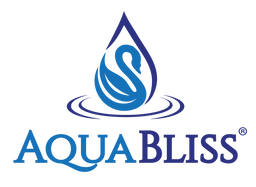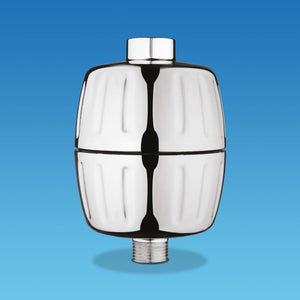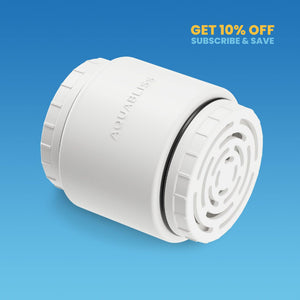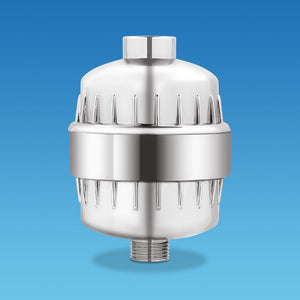Water is fundamental to our health, making up around 60% of the human body. It’s crucial for drinking, cooking, cleaning, and bathing, but the quality of water directly impacts how well it serves these purposes.
Installing a water filtration system can transform your water supply, helping remove harmful contaminants and delivering numerous benefits to every member of your household.
Why Filtered Water is Essential for Health

Filtered water is essential because it removes impurities present in tap water, which can include harmful bacteria, heavy metals, and other dangerous contaminants.
While tap water in many regions goes through a treatment process, the water delivered to your home may still contain unwanted substances. Installing a high-quality water filter can remove these contaminants, offering you peace of mind about your water's purity.
9 Benefits of Filtering Water
The benefits of filtered water go beyond the taste; drinking filtered water offers several health benefits. Here are some ways water filtration supports your family’s health:
1. Reduced Exposure to Harmful Chemicals
Water filtration systems remove chlorine, chloramine, and other chemicals commonly used in water treatment. While these chemicals are effective disinfectants, they can irritate the skin and have potential long-term health risks when consumed in large quantities.
2. Improved Water Quality for Better Skin and Hair
Filtered water is gentler on the skin and hair. By removing harsh chemicals and impurities, filtered water helps maintain the skin's natural oils and reduces the risk of skin conditions. This benefit is especially noticeable for people who suffer from conditions like eczema or dry skin.
3. Lower Risk of Gastrointestinal Issues
Drinking water that has been filtered to remove harmful bacteria and pathogens can reduce your risk of gastrointestinal illnesses.
Dangerous contaminants like E. coli and Cryptosporidium are sometimes present in unfiltered tap water, and a filtration system helps ensure these pathogens are removed before they reach your glass.
4. Protection Against Heavy Metals
Heavy metals, such as lead, mercury, and arsenic, can leach into drinking water through old pipes and pollution.
A home water filtration system, especially one with a whole-house filter, can reduce exposure to these metals, protecting against health issues related to heavy metal consumption, including developmental problems in children and neurological concerns in adults.
5. Improved Taste, Smell, and Appearance
Filtered water enhances the taste, smell, and appearance of your water. By removing chemicals like chlorine and impurities, filtered water is cleaner, clearer, and more refreshing, improving the taste of drinks and food prepared with it.
6. Reduced Wear and Tear on Appliances and Pipes
Filtering your water helps prevent mineral buildup that can damage appliances and clog pipes. This reduces maintenance costs and prolongs the life of appliances like dishwashers, water heaters, and washing machines.
7. Softer, Longer-Lasting Clothes
Filtered water helps keep clothes soft and vibrant by reducing mineral buildup from hard water. This prevents fabrics from becoming stiff and worn, making your clothes last longer.
8. Improved Air Quality
Filtering water reduces chlorine vapors that can affect indoor air quality, especially in bathrooms and kitchens. This helps prevent respiratory irritation and promotes better air quality in your home.
9. Environmentally and Cost-Friendly Alternative to Bottled Water
Using a water filtration system eliminates the need for bottled water, saving you money and reducing plastic waste. It’s an eco-friendly, cost-effective solution that helps protect the environment.
Key Statistics About Global Water Supply
-
Only about 2.5% of the Earth's water is freshwater, and less than 1% of this is accessible for daily human use, meaning the supply is limited.
-
Despite water treatment processes, contaminants can persist. For instance, lead pipes in older cities may leach heavy metals, which are difficult for standard treatment facilities to eliminate completely.
The Downsides of Tap Water
Many people assume that tap water is safe if it looks clear and tastes fine, but this can be misleading. Unfiltered tap water may contain various harmful chemicals, pathogens, and heavy metals.
Tap water can also include chlorine, a common disinfectant that can affect the water's taste and may pose health concerns when consumed in large quantities over time.
Additionally, city water may contain plastic residues and other contaminants that require further filtration.
A home water filtration system can act as a final line of defense, filtering out impurities and providing safer, cleaner water for drinking, cooking, and washing.
Bottled Water: A Costly and Environmentally Harmful Solution
For those concerned about tap water quality, bottled water may seem like an easy alternative. However, bottled water is not only costly but also has massive environmental impacts.
Plastic water bottles contribute significantly to plastic waste, taking up to 450 years to decompose. By switching to reusable water bottles filled with filtered water, you can reduce plastic waste while ensuring you’re consuming high-quality, contaminant-free water.
Moreover, a water filtration system can provide similar (or even better) quality than bottled water without the environmental toll.
Drinking filtered water is not only healthier for you, but it also supports a cleaner, greener planet by reducing reliance on single-use plastics.
Types of Water Filtration Systems

Water filtration systems vary in complexity and function, and understanding the options can help you find the best solution for your household needs.
1. Whole House Water Filters
Whole house water filters, also known as point-of-entry systems, are installed at the main water line. They filter water before it enters your home, providing filtered water to every faucet.
This system is ideal for households that want to ensure clean water for drinking, bathing, and cooking.
2. Under Sink Water Filters
An under-sink water filter is installed directly below a kitchen sink. This type of filtration system typically uses activated carbon filtering to remove contaminants from drinking water and is a popular water filtration method for those who want an effective yet discreet solution for their kitchen tap.
3. Reverse Osmosis Systems
Reverse osmosis (RO) systems are highly effective at removing a wide range of contaminants, including heavy metals, chemicals, and even some bacteria.
By pushing water through a semi-permeable membrane, reverse osmosis removes both large and microscopic contaminants, resulting in pure water. This system is especially useful for families concerned about contaminants like lead and chlorine.
4. Activated Carbon Filters
Activated carbon is one of the most common filtration media and is effective at removing chlorine, pesticides, and organic compounds. It works through adsorption, where contaminants are attracted and held by the carbon.
Activated carbon filters are often found in whole-house and under-sink systems and are highly efficient in improving the water's taste and odor.
The Cost-Effectiveness of Water Filtration Systems
While the initial installation of a water filtration system might seem like an investment, it quickly proves to be cost-effective. By filtering your water at home, you eliminate the need for purchasing bottled water, saving money and reducing plastic waste.
Additionally, filtering water at home can extend the lifespan of household appliances by reducing mineral buildup and improving water quality for use in dishwashers, clothes washers, and other devices.
Environmental Benefits of Filtering Water
Investing in a water filtration system is also a sustainable choice. By cutting down on the use of plastic bottles, you contribute to reducing plastic waste, a significant pollutant in oceans and landfills.
Choosing reusable water bottles and filling them with filtered water can significantly lower your carbon footprint and support global efforts to reduce plastic pollution.
Additional Benefits of Filtered Water for Household Use
Filtered water is not only beneficial for drinking but also improves the quality of water used for other household purposes.
For example:
-
Cleaner Dishes and Laundry: Filtered water prevents mineral buildup on dishes and clothes, making cleaning more effective and extending the life of household items.
-
Better Tasting Water for Cooking: Using filtered water enhances the taste of food and beverages by removing impurities that can alter flavors.
-
Improved Appliance Longevity: By filtering out minerals that cause scale buildup, water filtration systems help maintain the efficiency of appliances such as coffee makers, kettles, and washing machines.
Why Every Home Should Invest in a Water Filtration System
A water filtration system is an investment in your health and well-being. With professional installation, you can ensure clean drinking water straight from the tap, significantly improving your home’s water quality.
From whole house water filters to under-sink options, there’s a solution that fits every budget and household need.
Conclusion: Embrace the Benefits of Filtered Water Today

Filtered water provides a host of health and environmental benefits that make it an essential part of modern living. With a high-quality water filtration system installed, you can rest assured that your family is drinking clean, pure water free from harmful contaminants.
The benefits of filtered water extend to every area of the home, from safer drinking water to longer-lasting appliances. Embrace the numerous advantages of filtered water and make a lasting investment in your family’s health and the health of the planet.
Make the shift today, and experience the benefits of clean, filtered water for your whole family. With AquaBliss water filters, you can enjoy better hydration, improved skin health, and peace of mind knowing that your water supply is pure and safe.







